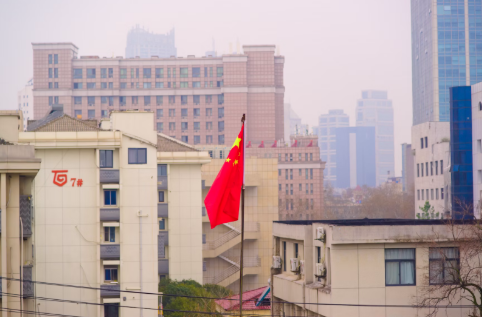China’s Top Court Tightens Labor Rules, Extends Liability to Foreign Offices
Beijing, August 30, 2025 – China’s campaign to counter foreign sanctions has entered a more aggressive phase, posing new compliance risks for multinational companies and their legal advisers. Following the March 2025 issuance of Regulations on the Implementation of the Anti-Foreign Sanctions Law (AFSL), Chinese authorities have expanded the scope of retaliatory measures and signaled stricter enforcementjonesday.comjonesday.com. Since the AFSL’s inception in 2021, at least 59 foreign entities and 63 individuals have been added to China’s counter-sanctions blacklist for actions deemed to harm China’s national interestsjonesday.com. The recent implementing rules encourage Chinese companies and citizens to launch lawsuits in domestic courts against parties that abide by foreign sanctionsjonesday.com. Caught in the middle, foreign law firms operating in China face a delicate balancing act between international sanction regimes and China’s anti-sanctions mandates, with compliance officers bracing for legal conflicts across jurisdictions.
Expanded Scope and Jurisdiction
The March 2025 AFSL implementation regulations dramatically broaden the law’s reach, both in terms of targets and actions coveredlaw.asialaw.asia. Beijing’s countermeasures can now apply not only to foreign government bodies, but also to specific organizations and individuals outside China that participate in sanctioning Chinese entitieslaw.asia. Acts that “endanger China’s sovereignty, security, or development interests” – a catch-all phrase – are explicitly added as triggers for Chinese counter-sanctionslaw.asia. This means a far wider range of foreign conduct (including third-party compliance with U.S./EU sanctions or court judgments against Chinese firms) could land a company or person on China’s Countermeasure List. Notably, the AFSL purports to exert jurisdiction worldwide: if a European consulting firm, for instance, cuts ties with a Chinese client due to U.S. sanctions, China may view that as “discriminatory action” subject to retaliation. Foreign lawyers must recognize that their clients’ activities anywhere could be scrutinized under these rules if Chinese interests are affected. The AFSL framework essentially challenges the extraterritorial reach of Western sanctions by asserting a mirror-like extraterritoriality of China’s own law.
Countermeasures at a Glance
Chinese authorities now have a menu of punitive measures to deploy under the AFSL and its new regulationsjonesday.com, including:
- Visa & Entry Bans: Refusing or revoking visas and denying entry into China for sanctioned individualslaw.asia.
- Asset Freezes: Seizing or freezing assets in China, from bank accounts to real estate and intellectual propertylaw.asialaw.asia.
- Sectoral Bans: Prohibiting or restricting business cooperation in key sectors – e.g. education, technology, legal services, finance, and others – with targeted foreign entitieslaw.asia. This could bar a blacklisted foreign law firm or consultancy from working with Chinese partnerslaw.asia.
“Other Necessary Measures”: A broad category now clarified to include export controls, investment restrictions, bans on data transfers, and even revocation of work or residence permitslaw.asia. For example, China could forbid a company on the list from receiving certain Chinese tech exports, or block a firm’s ability to transfer data out of China as punishmentlaw.asia.
These measures underscore that legal service providers are not exempt: a foreign firm complying with sanctions could see its China office or clients subject to asset freezes or partnership bans. The regulations also set out enforcement procedures among various ministries, indicating a whole-of-government approach to implementationlaw.asia.
Compliance Dilemmas for Multinationals
The widened scope of China’s anti-sanctions regime creates a fraught compliance dilemma for global companies. On one hand, firms face legal obligations in their home jurisdictions to honor sanctions (for example, a European bank must follow EU sanctions rules). On the other hand, China now explicitly prohibits compliance with “discriminatory” foreign measures and empowers Chinese parties to seek damages if a company halts business due to those foreign sanctionsjonesday.com. The first test case surfaced in March 2025: a Chinese engineering company sued a foreign supplier in Nanjing Maritime Court for suspending payments when the Chinese firm was blacklisted abroadjonesday.com. The Chinese court applied the AFSL, and the dispute settled with the foreign supplier paying up after obtaining a sanctions license from its own governmentjonesday.com. This outcome – effectively forcing the foreign company to fulfill the contract despite overseas sanctions – vividly illustrates the pressure on multinationals. Chinese regulators are even encouraging such private lawsuits, signaling to Chinese businesses that they should fight back in courtjonesday.com. Foreign general counsel must now perform careful risk assessments: every decision to comply with a U.S./EU sanction against a Chinese entity could trigger legal action in China. This extends to law firms advising on sanctions – they must navigate attorney-client communications carefully, as advising a client to cut off a Chinese partner could be seen as “assisting” in a foreign sanction, potentially running afoul of Chinese law.
Enforcement and Risk Mitigation
Enforcement of the AFSL is no longer theoretical. Alongside the 59 foreign entities already sanctioned by China to datejonesday.com, more names are quietly being added when geopolitical disputes flare. Companies or individuals on China’s Countermeasure List face not only direct penalties but reputational and operational fallout – Chinese partners will be compelled to sever ties, and travel to China may be barred. Importantly, China’s Ministry of Commerce has yet to issue any formal “blocking” order against specific foreign laws (a tool provided by separate Blocking Rules)jonesday.com, indicating some restraint. But the ambiguity in what constitutes a forbidden “foreign discriminatory measure” leaves multinationals guessing, which itself is a risk. To mitigate exposure, companies are considering contract clauses that account for Chinese counter-sanctions, dual-compliance protocols, and even restructuring China operations to firewall them from global decisions. Foreign law firms are developing contingency plans: for example, if a client is sued in China for sanction compliance, the firm must be prepared to defend under Chinese law or face being named as a co-defendant for “assisting” sanction enforcement. Staying engaged with both U.S./EU and Chinese regulators is now part of a robust compliance strategy. Ultimately, China’s enhanced counter-sanctions law heralds a new era of legal friction – one in which international legal practitioners must continuously weigh overlapping legal mandates and advise clients how best to navigate an increasingly tricky path between East and West.



